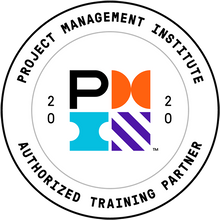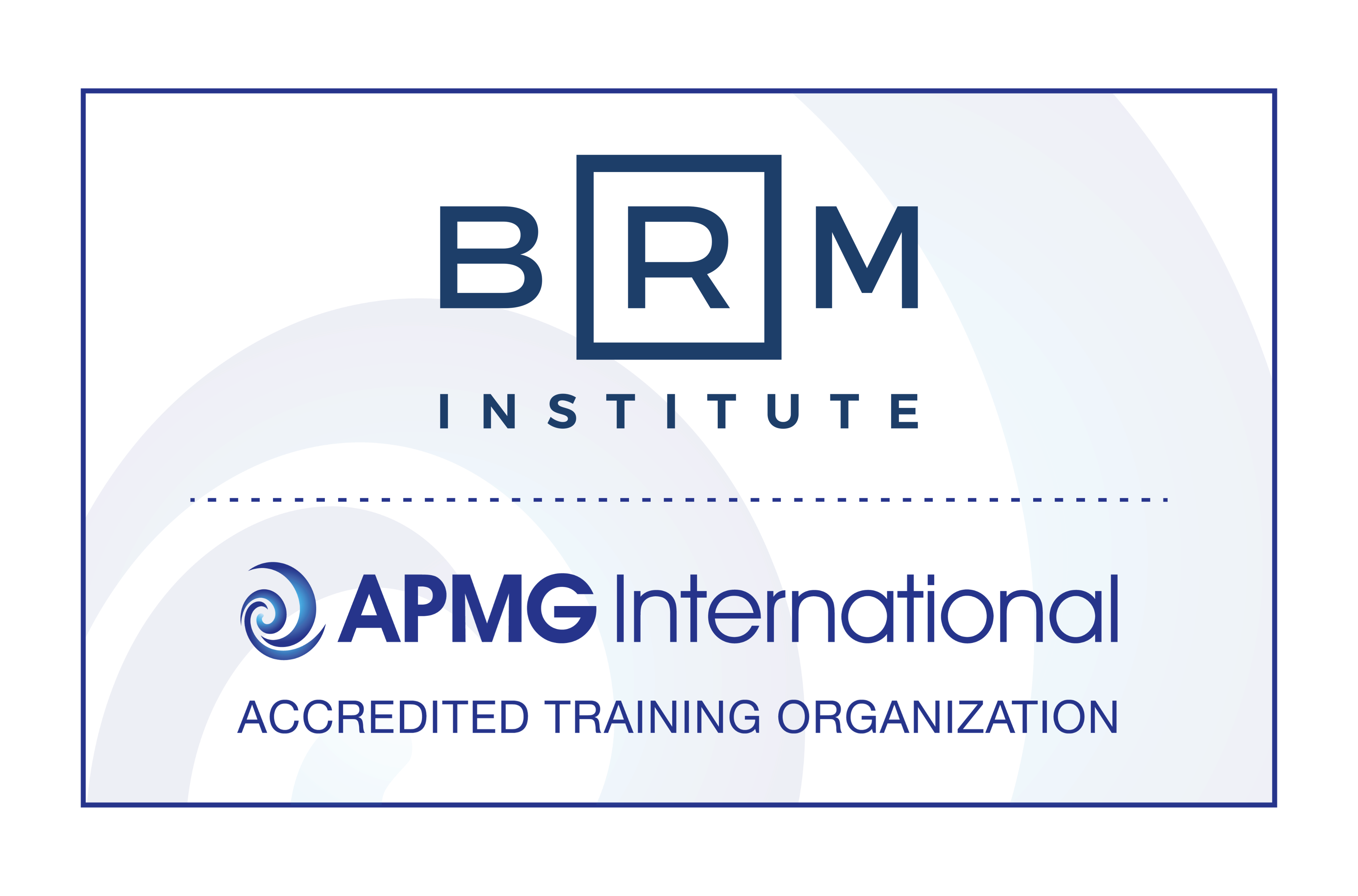Resource Center
- White Papers & Articles
- Career Resources
- Tools, Templates & Checklists
- Webinars & Events
- Client Spotlights
- Industry Spotlights
- Video Library
Managing in the Matrix
By Bonnie Cooper, PMP
The matrix organization is defined by its vertical functions and its horizontal processes or projects. A weak matrix, in the project management context, is where an organization is run primarily by its functional teams, and projects are initiated to drive internal change or create strategic advantage. In this
environment, business stakeholders work on projects part time, and can perceive project tasks as a distraction from their regular day-to-day work.
Technical stakeholders are often juggling multiple project assignments in addition to ad-hoc operational tasks, and business system production problems will always take top priority, further diluting focus from project work. In this environment, functional/resource managers have a tremendous amount of influence on project assignments, estimates, prioritization, and performance.
Working in a weak matrix organization can be a very frustrating experience for project managers, and most that have worked for me or participate in my classes have expressed these three concerns:
- A desire to have all team members report directly to them
- Having all team members be highly-skilled and top performers
- Having team members who are fully allocated to the project
Who doesn’t want to be in full control with no distractions and work with a team of superstars? In the world I just described, this isn’t likely; so, what are some strategies for dealing with these concerns? And, more importantly, how can we turn these concerns into advantages?
Let’s first tackle the issue of managing a cross-functional team where they only have a dotted line relationship to you, the project manager. How do you create a sense of urgency and purpose so the individual team member will focus on your project's tasks? Here are some things that I do:
- During a project's kickoff phase, I talk to everyone about the project’s significance to the organization. Why it was initiated, the business goal, the problem it is solving or the new opportunity it will afford. What I’ve found is that people feel good when they know they are working on important things.
- I always try to find out what peoples’ individual goals are and how the project might help to meet them (new skill, recognition, career advancement, etc.). A technology manager once told me that projects matter to his staff when the result is learning something new, gaining a market-friendly skill, or gaining visibility in the organization; so, if organizational strategy isn’t doing it, appealing to an individual’s personal goals is another motivating factor.
- Most importantly, I develop strong relationships with functional/resource managers. I earn their trust by making sure their employees are productive and not wandering lost in the project.
- As a general rule, I let people tell me when they can deliver (rather than dictate deadlines), but then I hold them accountable to their commitments.
Now, what about the issue of skills and performance? Project teams must have the skill set necessary to complete its tasks, but it is not unusual to be assigned someone who's "available" versus the most appropriate for the job.
- In a technology organization, the skill gaps (in utility players versus superstars), usually center on a lack of overall architecture knowledge, business knowledge, an inability to communicate, or an inability to properly estimate work. I handle this by requesting involvement by a technical lead that can provide the design, coaching, and estimating support to the “utility” player.
- On the business side, usually the issue is a lack of knowledge of the entire process (and a lack of business analysts). My strategy here is to make this knowledge explicit by conducting 360-degree reviews of a process with all business players involved to ensure the plan is informed by our collective knowledge. I try to get as much written down as possible (even if it is just checklists and workflows), so it can provide the fodder necessary for training (skill building), testing, and future project input.
- Having star performers on your team is a treat. They just “get it” and know what to do; but, let’s face it; star performers don’t often want to do the mundane or tedious tasks. Having a blend of strengths is a key component to getting all the work completed in the project, and gives you the ability to play to everyones’ strengths. There is nothing more satisfying than giving someone the opportunity to stretch, and if successful, creates more options for skilled talent in the next project.
- I try and encourage project managers to work directly with individuals regarding their performance before escalating to functional managers. As a project manager in an organization, chances are, you will work with the same people over and over. If you don’t establish trust and a healthy rapport with these people, the same difficulties will be evident in every project. Before escalating, find out if the issues are due to a lack of task clarity or team conflicts. Maybe there are things in the project that you can fix to help someone turn performance around.
- If you need to involve the functional manager, try and work with the individual and their functional manager to highlight the trouble spots and ask for support to make everyone successful; in other words, before you “escalate,” demonstrate that you have tried to find solutions with the individual performer. Firing a team member is a last resort, but should happen if they are truly incompetent or disruptive to the team. The key is that that functional manager has a) seen your willingness to make it work, and b) demonstrated commitment to help you get a fair resolution to the performance issue.
Lastly, on the issue of allocation, how do I keep folks from being distracted by other work?
- I focus on the basics of task delegation, meaning I am very concerned that the work is broken down into concrete deliverables, and that there is clarity in the work. If training or consulting expertise is required to inform the work, then it is arranged. If internal technical mentoring is required, then it is arranged. I try to provide individuals a clear path to success, and I find this often translates into someone choosing my project’s tasks over other more ambiguous work.
- I make sure project scheduling is informed by the business cycle; for instance, I avoid scheduling a finance project during the fiscal year-end months, or a membership project during the annual dues renewal campaign. Why set up a reason for folks to be distracted? If I’m given a “hard” deadline, then I use that as a motivator to drive resource focus. Hard deadlines are generally business or regulation driven, and I leverage them to create urgency in the project and gain support for prioritizing this project’s tasks over other work.
- I am highly organized about task assignment and keep track of what is due each week. I try to deal directly with team members about missed deadlines, and usually missing deadlines is more about being distracted than being incompetent. If it is a question of priorities, I am not shy to involve the resource manager and business sponsors for support in getting focus back to my project’s tasks. Lastly, I always try to support the plight of resource/business managers who are juggling multiple priorities. If deadlines can be adjusted, I try to adjust them. I want to create goodwill by supporting a crisis outside my project, but at the same time being firm (and communicative) about critical path activities.
The way I look at it, success in the matrix is about influence, relationships, and commitment. I encourage accountability from team members and functional managers alike and enlist the support of sponsors to maintain visibility and project importance. I build trust by demonstrating a personal stake in outcomes, in people’s development, and being aware of overall organizational priorities. I am highly organized about tasks and deliverables, especially critical path activities. I advocate for the team and recognize that schedules must be realistic and informed by the unique challenges of managing in the matrix!
For more information on this topic, as well as how Corporate Education Group can help optimize your organization’s performance, contact us or call 1.800.288.7246 (US only) or +1.978.649.8200.
About the Author:
Bonnie Cooper, PMP, instructor and subject matter expert for Corporate Education Group, is a twenty-year information technology professional, and is currently Program Director for the Massachusetts Medical Society’s (MMS) Corporate IT Program Office. In her current role, she is responsible for coordinating the efforts of project teams, overseeing the implementation of project standards, managing the corporate IT strategic plan, and leading the program to re-engineer the membership platform for MMS.







